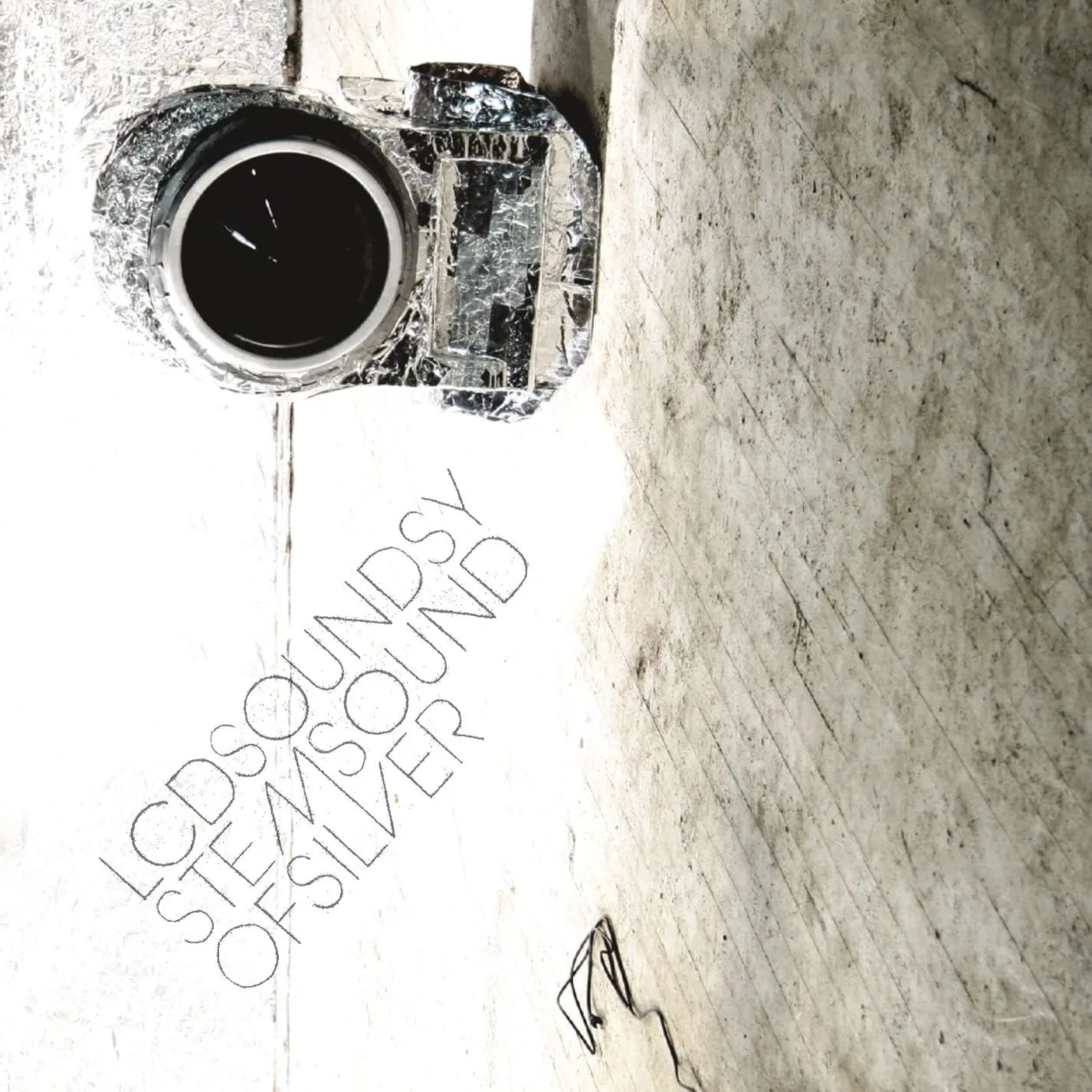There are few bands more important over the last decade than LCD Soundsystem. Bowing out at the top of their game, their final days are documented by new film, Shut Up And Play The Hits. James Murphy tells Simone Scott Warren why it had to come to an end.
Define what it is to be cool. It’s harder than you might think. We couple it with words like “effortlessly”, but all that’s really saying is that someone isn’t trying too hard. Trying too hard is definitely not cool. Even the word itself, like a Dad trying to be down with the kids, seems fundamentally uncool.
James Murphy, by rights, should not be considered cool. For one thing, he’s in his forties, which under normal circumstances would automatically rule him out. He admits to trying; he confesses to having read Thomas Pynchon’s ‘Gravity’s Rainbow’ numerous times in the hope that it would make him appear cooler. His hair doesn’t seem to sit quite right, he is not stick thin with model good looks. The stubble permanently covering his face is flecked with grey. He should be the poster boy for the terminally uncool, and yet he’s the exact opposite.
Breaking up LCD Soundsystem at the point that he did, a decade and three albums in without putting a foot wrong, cemented his place at the head of the cool table. True, there was a slight suspicion that he did so because, having mentioned splitting the band up in interviews prior to the release of third album, 2010’s ‘This Is Happening’, he’d backed himself into a bit of a corner and so actually had to go through with it.
The cinematic release of the new documentary, Shut Up And Play The Hits, filmed during the 48 hours around the band’s final gig at Madison Square Garden in April 2011, casts aside those aspersions. Clarifying the real reasons behind the split, it’s beautifully shot, as one would expect from the two Englishmen behind 2010’s Blur film ‘No Distance Left To Run’ and a cameraman by the name of Spike Jonze. The film itself is a glorious juxtaposition of the build up to (and euphoria of ) the concert, and the inevitable comedown of the following day. Exactly how important LCD Soundsystem were is demonstrated, not by a narrator or documentary style piece to camera, but rather from the frames of a fan crying his eyes out, seemingly unwilling to leave the venue.
The overwhelming sensation of the film is that of the genuine love between Murphy and those surrounding him. Where most bands explode in a blaze of acrimony, that certainly wasn’t the case here. Indeed, the unaddressed issue is whether there might be some resentment from within LCD Soundsystem’s band members over the ending of the certainty of the work, and ergo, income, that being part of one of the most important bands of the decade would surely provide.
Put that to Murphy himself, and he denies emphatically that this is the case. “It was never set up to be so,” he tells us during a transatlantic call to Los Angeles where he’s currently working. “I’d only ever asked people to be in the band for a very short period in 2002, and everyone had other things. It was more often the case that I felt guilty about the long tours, because it really took a lot out of other people’s lives.
“We’d agree in principle that we were going to go out on a tour. People would put in the dates that they needed to be home for, and we’d try to work around it. It was very nice that they all stayed for so long. People really had a hard time finding the time to do it.”
The thorny issue of touring appears to be one of the primary reasons for disbanding; as the film interweaves through various strands, the most enlightening is an interview between Murphy and Chuck Klosterman, a journalist for the New York Times. During that segment, James admits that he feels he aged more during tours. That when he stayed at home in New York he would barely change physically, but take the same amount of time on the road, he’d find those grey follicles multiplying with wild abandon.
With a year having passed since the shooting of the documentary, for a less considered character the reasoning might have changed with the benefit of hindsight. Murphy, however, is resolute. “In the past, the requirements of the bands that I loved, in the long run, were not as big as the requirements of modern bands. It was relatively common not to go on world tours for every record. It was common to put out more albums, to travel less, do fewer interviews; that was normal. Now you’ve got to keep up the website, make videos for everything, make extra content to go around certain songs. It just means that to do it professionally, to professionally be LCD Soundsystem, meant you couldn’t do anything else. Or it meant you have to relegate all these activities, to delegate them to people in the management team, which I felt was cheating. So I couldn’t have a life and do everything the way I wanted to do it. If I couldn’t do it, and do it the way that I felt was right, then I just shouldn’t do it.”
It’s not too much of a stretch to suggest that James Murphy is a workaholic; a theory that he does little to disprove during our conversation. In the film, he tells Klosterman that part of the reason for quitting was a desire to slow down, to have children, to achieve more of a work life balance, but since stopping the band he seems, from the outside at least, as busy as ever. “For me, work is not separate from my life. Work is a really big part of my life,” he counters. “Whether that’s work that’s worthy or not, a huge portion of my life is about making things. It’s what I like to do. In a way it’s about having space, having the time to write something, or read a book, or take photos. To make stuff. It’s more about this work vs that work. It’s not turning out to be much of a retirement, it’s turning out to be a lot of work.”
Having been introduced to Dylan Southern and Will Lovelace by the BBC to produce an altogether different film, when Murphy talks about the Shut Up And Play The Hits it’s the first time during our conversation that you feel he didn’t strive for complete control. “We were all thinking it was the other guys’ idea for a while. They’re the filmmakers, and they approach things in a more normal way. I mean, they picked the songs that went in, I didn’t.” Which is not to say that he didn’t have very definite ideas as to how the band should be presented. “I approached this as LCD Soundsystem. I really wanted it to represent who was playing what, to help people understand what’s happening on stage. It’s always been about what the band is, controlling what the band sounds like, and when you have visuals, that changes what it sounds like in a strange way, because it’s like another voice. When the cowbell starts, I want you to see the cowbell, so you know that’s Gavin. You tend to think of music as a block, and when you see it you see how it’s created. I really think that’s interesting.”
Re-watching a pivotal 48 hours in your own existence must dredge up some strange sensations. It’s an unfathomable process for most of us; committing to celluloid the run up and demise of the most important event in your own life thus far. There’s a particularly moving scene where it becomes clear exactly how much it all meant to James; he is stood in a large storage unit the day after the final gig, surrounded by equipment and flight cases bearing the LCD logo, trying to decide what to keep and what to sell, and dissolves into unstoppable tears. What Murphy took from that - from watching his own reactions - he confesses, is a sense of embarrassment rather than emotion. However he does concede that what Shut Up And Play The Hits really gave him was a different perspective on his own band; “I realised that I’d probably been too hard on everybody. That, without the adrenaline of the show, and the anxiety, I realised how well everybody played together. Much better than I would hear on stage. Everybody was just so good at what they do. That was just a real revelation to me, because I always experienced the band from standing and singing, filled with anxiety, worried that there was going to be a mistake.”
Finding success with LCD Soundsystem came far later in life than it does for most musicians. Murphy was already into his thirties when ‘Losing My Edge’, the poignant and witty debut single, broke him through into public consciousness. As an ode to finding the kids snapping at your heels and becoming your new, younger, cooler, competition, it achieved the accolades that had eluded him during his twenties when he was busy setting up DFA Records and DJing around New York. With age a definite factor in his decision to quit, it’s tempting to think that the ending of the LCD story might have been different had he been a decade younger.
“If it had happened when I was in my twenties, my sense of self was a lot thinner. The tempting change in self image that’s presented to you when you’re successful in life would have been irresistible.” James agrees, “I probably would have believed more of what other people said about about me and my band, both positive and negative. I had a lot more need for acceptance as part of how I would define myself. When you see musicians in their late teens or early twenties, I think that they can have an insatiable hole that they never healed up, because it’s like, why would you heal something up when it feels so good to just pour this adulation into that hole? It’s easier to stop when you can separate that stuff. So I think I’d have been tempted to go on forever, because I wouldn’t have wanted to give up that drug of being liked. Since I failed so miserably for most of my adult life, I’ve been forced to figure how to fill that hole up in a different way.”
Failure is a word that appears often in the story of James Murphy, but unlike those younger musicians, it’s not the fear of failure that we force him to ruminate over, but retrospectively where he might have already done so. During the film, Klosterman puts it to Murphy that whilst bands are celebrated for their successes, they’re defined by their mistakes. Whilst searching for LCD’s one big failure, he struggles to provide an answer beyond disbanding, which given the certainty that he now presents that it was the right thing to do, seems a little strange. “I still don’t think we f**ked up.” Murphy is adamant, when pressed once more over the subject of whether there is one stupid decision that he might change. “The only thing that could be a f**k up is giving up, quitting. Maybe it would’ve been better to go out and stink. Or try and make a Number One record, and suddenly turn into a dubstep band. Or try and make a crossover single with a guest singer. I don’t know, maybe all the things that I find really embarrassing would have been bolder, and more hilarious too.”
Although all the evidence points to the notion that in reality, there was no actual failure, if ending the band really is the only mistake, the small hope still remains that Murphy will reconsider. Rumours abound that LCD Soundsystem are already due to return, recording a cover for a soundtrack, and although James won’t be drawn on which film it is for, or even what the song is, he does confirm that this is true. “If we feel like doing something, we’re going to do it,” he states emphatically. “We’re grown people and there’s no legal obligation to do anything. A friend of mine was making a movie, he wanted a specific song, and he wanted me to cover it. I said I don’t want to because it’s perfect. And he was like, ‘You covered ‘Jump Into The Fire’. You recorded that!’ But we didn’t reproduce it, we just learned how to play it as a band. So I asked the rest of the band if they wanted to play this particular song, that we all like, for my friend’s movie. And they were like, yeah. Because now we’re not people in a big band. Now we’re a bunch of friends who used to be in a band, who want to go into a studio and record a particular song. The whole point of being done as a professional band is that now we can just be people who do things. That’s exciting. ”
But before we can get our hopes up, Murphy brings us back to reality. “It’s not like we’re going to reform. There will be no reforming.” As he once sang himself, it’s the end of an era, it’s true.
Shut Up And Play The Hits will be released in cinemas on 4th September, and via DVD / Blu-ray on 8th October. The DVD and exclusive items are available on pre-order from shutupandplaythehits.com.
Taken from the September 2012 issue of DIY, available now. For more details click here.
Read More
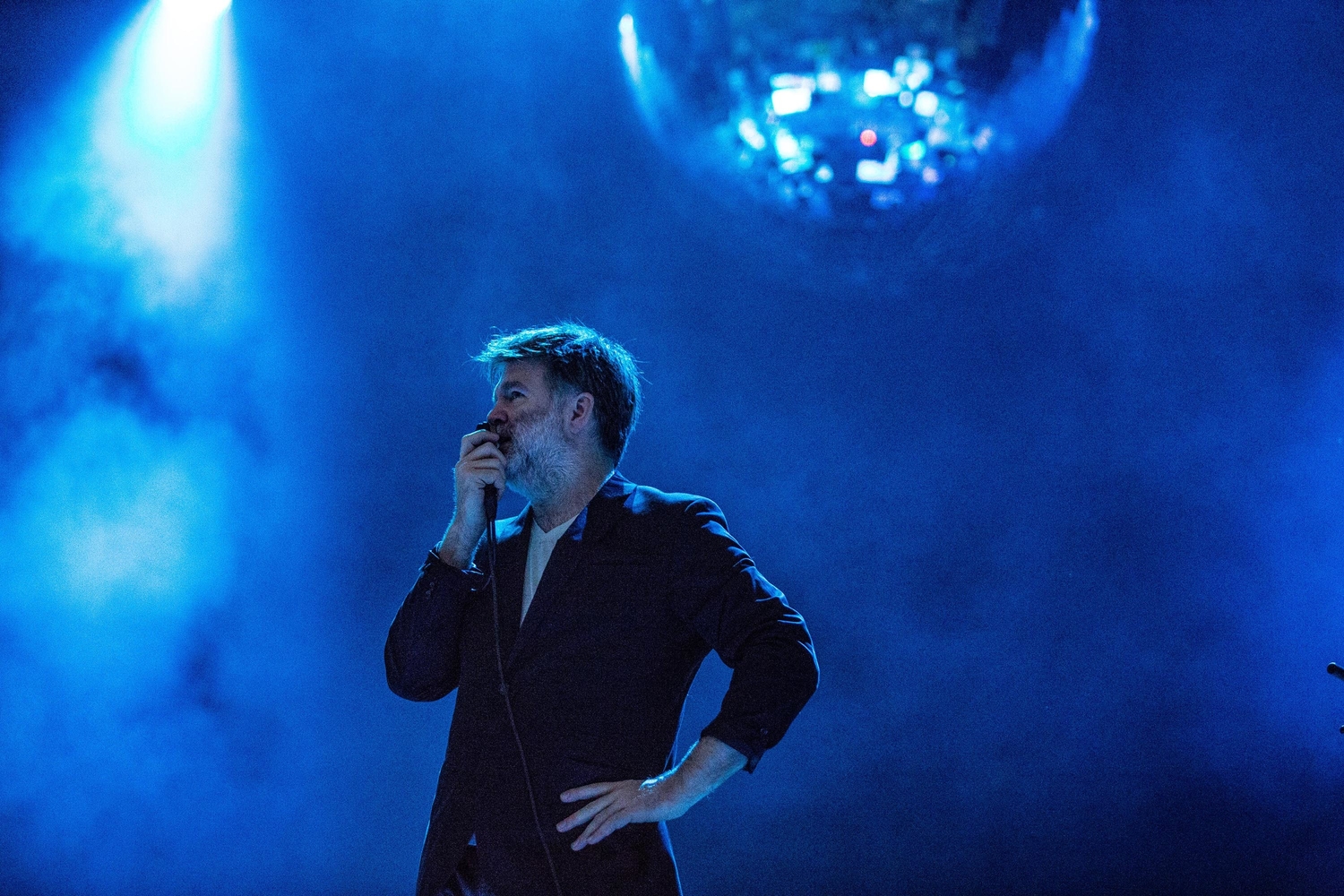
LCD Soundsystem to headline All Points East 2024
They'll be joined by the likes of Pixies, Jockstrap and Jai Paul at the Victoria Park event next summer.
1st December 2023, 11:40am
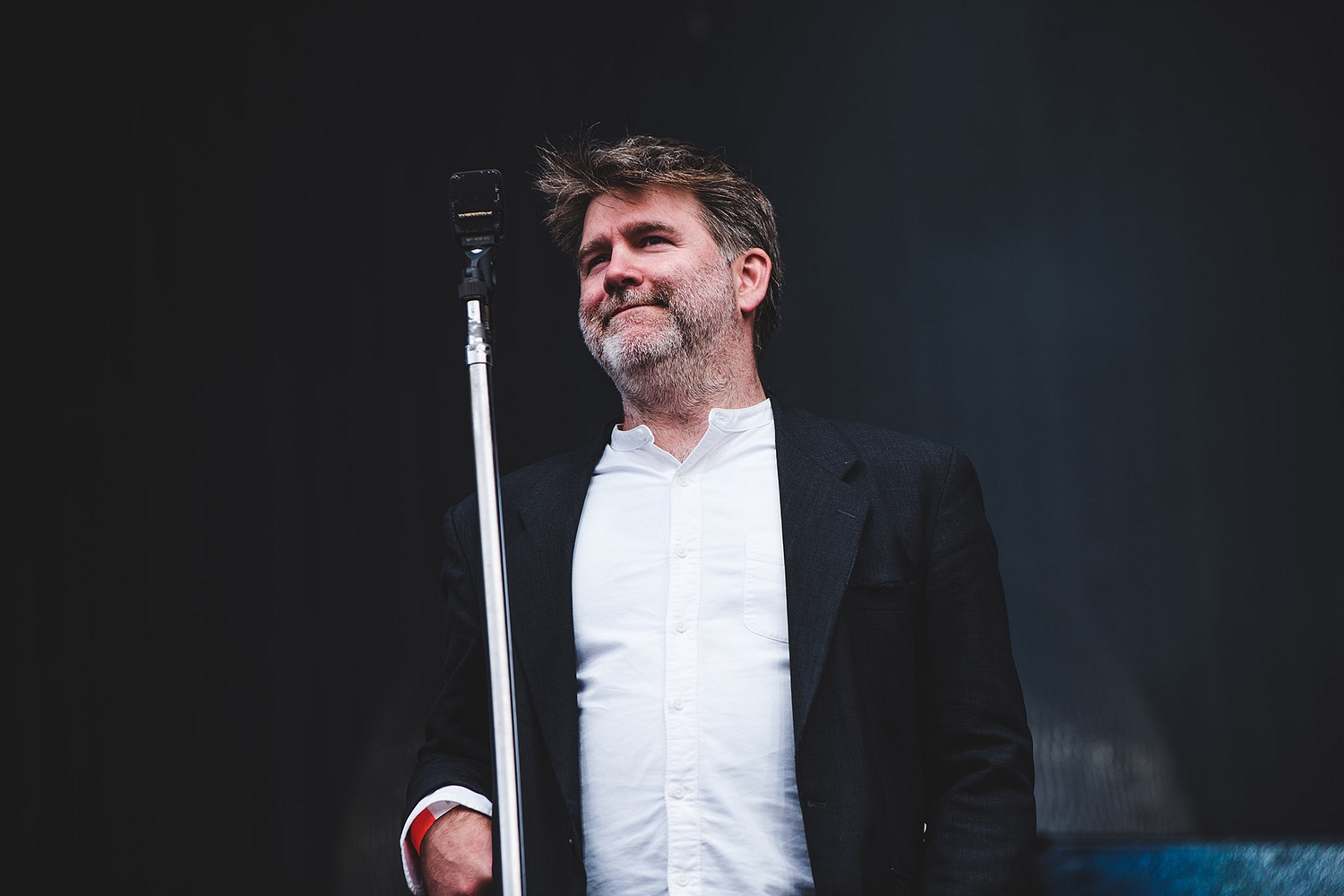
LCD Soundsystem announce ‘Electric Lady Sessions’ live album
James Murphy has explained the new career-spanning record in a note to fans.
14th January 2019, 12:00am
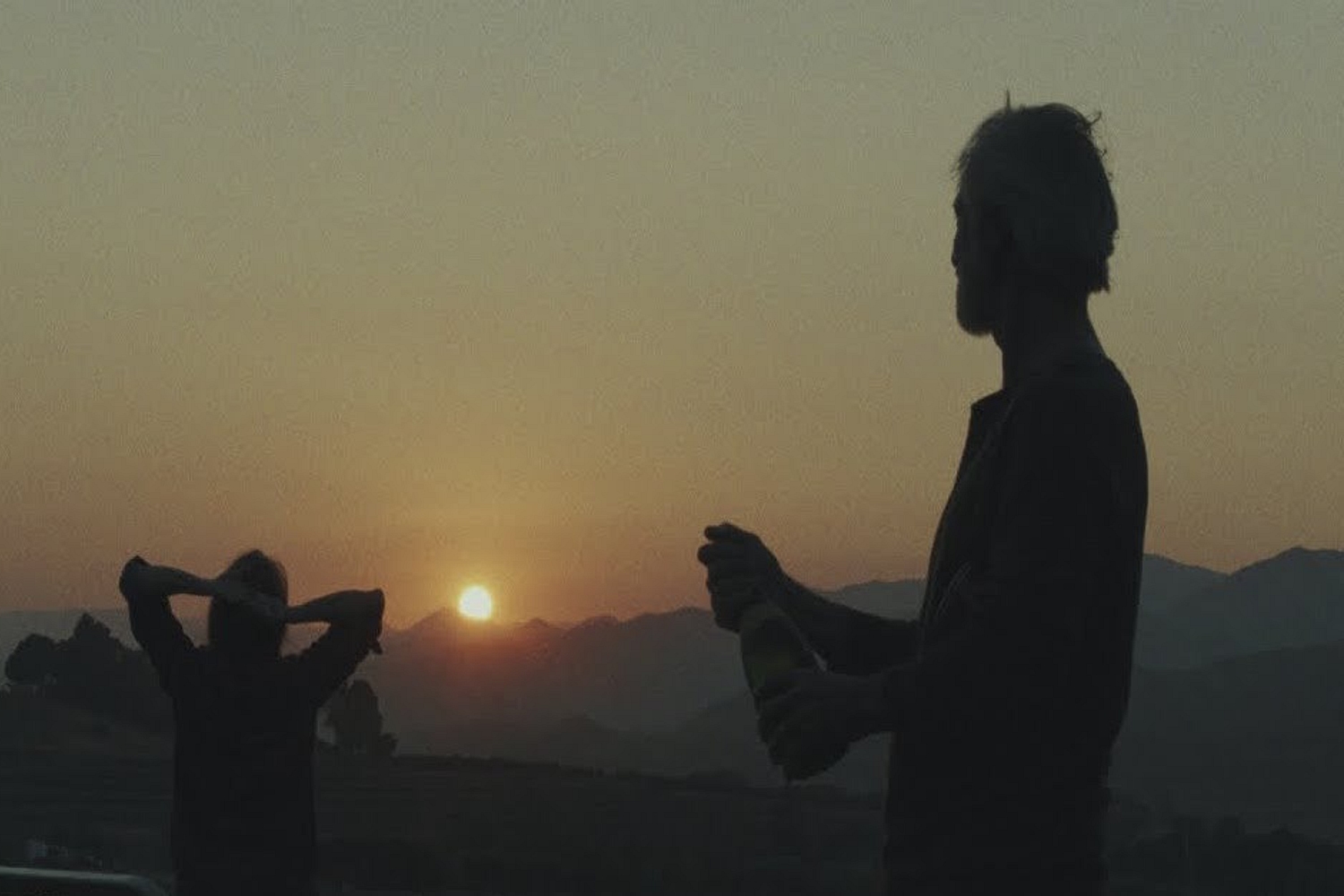
Watch LCD Soundsystem’s new ‘Oh Baby’ video
The clip was previously a TIDAL exclusive.
27th September 2018, 12:00am
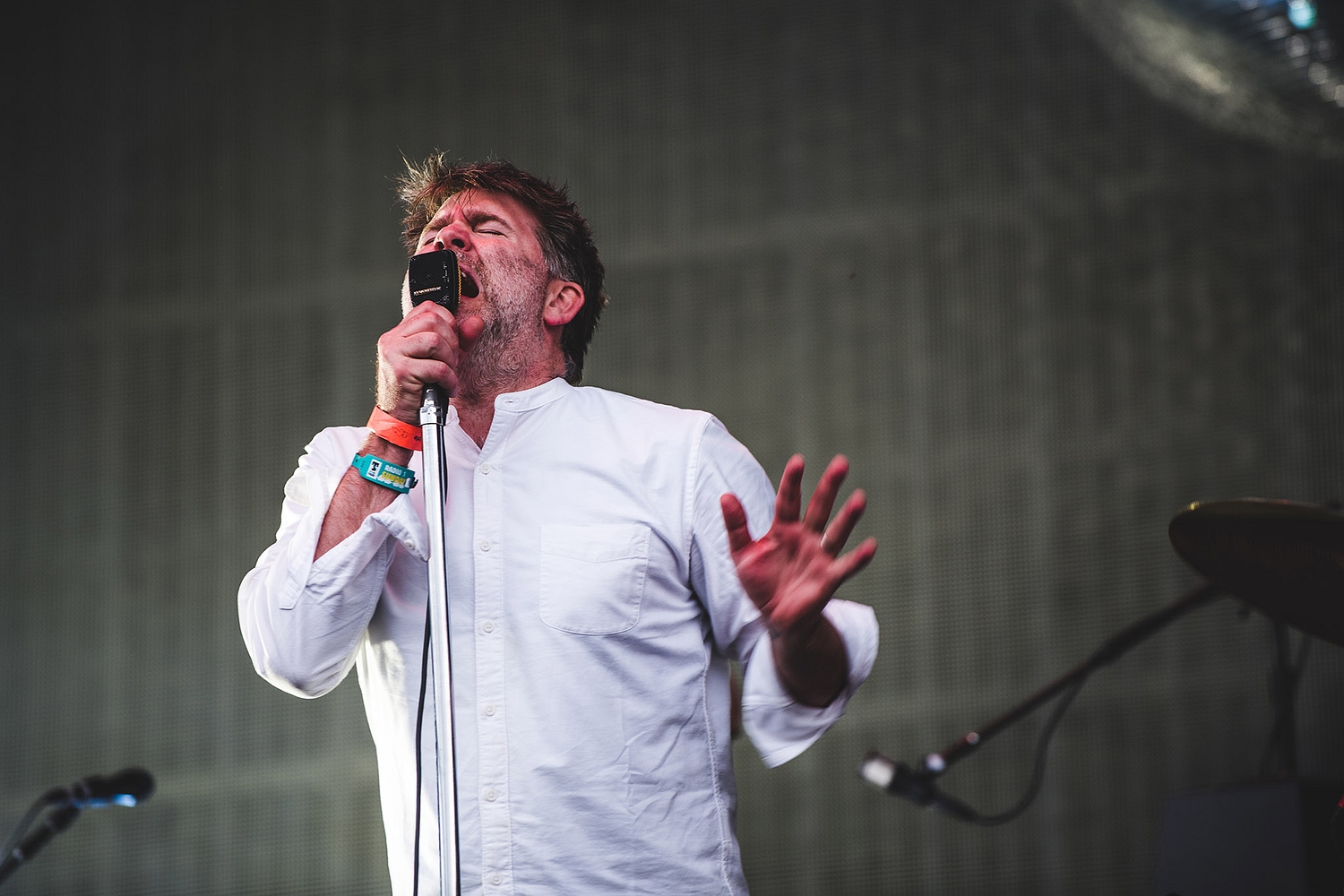
LCD Soundsystem cover Chic’s ‘I Want Your Love’ for Spotify Singles session
The track's mixed into 'Home' as per the band's recent live shows.
12th September 2018, 12:00am
